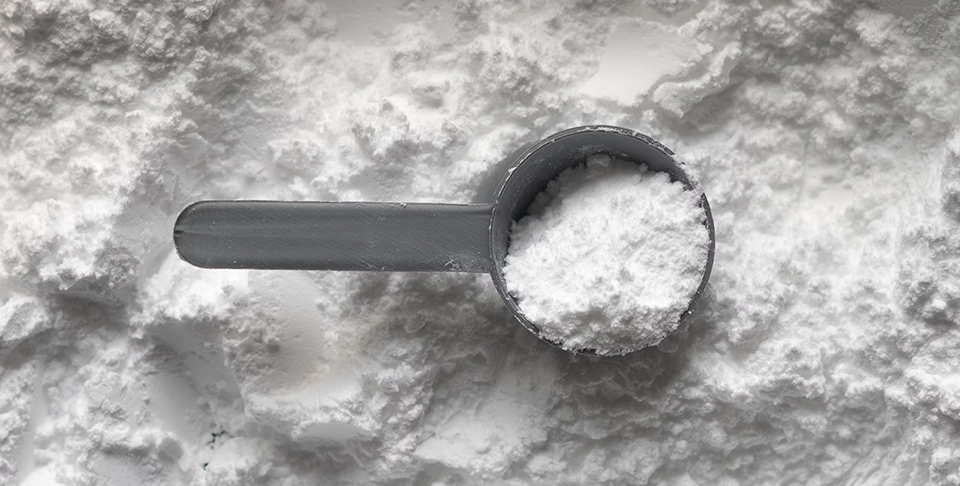A Quick Summary
- Whey protein is the most popular type of protein powder in the world and is derived from cheese processing
- Whey is the most easily absorbed & most bioavailable of all protein types
- Whey contains a high amount of essential amino acids, branched-chain amino acids & a variety of other bioactive compounds
- Whey protein helps with lean muscle gains, muscle growth, recovery, strength & athletic performance
- Whey protein aids in weight loss
- Whey protein can be consumed throughout the day but is optimally taken close to workout times
- The four main types of whey protein powders are whey protein concentrate, whey protein isolate, hydrolysed whey protein isolate, & blended whey proteins.
- Whey protein is safe for consumption but may cause stomach upsets for lactose-intolerant individuals
- The recommended daily protein intake is 1 to 2 grams of protein daily per kilo of body weight
- Stacking whey protein with other supplements can optimize results
- Whey protein is a valuable addition to any fitness or nutrition program
Whey protein is the most popular & effective type of protein powder on the market in Australia today. It is derived from cheese processing & contains a high amount of essential amino acids, branched-chain amino acids (BCAAs), & a variety of other bioactive compounds that are beneficial for muscle growth & recovery. In this article, we will explore the benefits of whey protein, its uses, & the recommended dosage to help you achieve your fitness goals.
What is Whey Protein Powder?
Whey protein powder is a complete protein source that contains all of the essential amino acids. It is of very high & rapid digestibility & bioavailability, making it the king of all proteins. Whey protein is derived from whey, which is a byproduct of cheese manufacturing. Milk is made up of two major protein components, whey & casein. When the casein has been removed to make cheese, this leaves the whey which can then be purified to varying degrees to make whey protein.
The Main Types of Whey Protein Powders
Whilst Whey Protein is a category in itself, different manufacturing processes do change the properties of the powder. Here are the most common types of whey protein powders:
- Whey protein concentrates (WPC): These contain lower levels of protein compared to other forms but have higher levels of lactose & fat. They are cost-effective and can be a good option for those on a budget.
- Whey protein isolate (WPI): WPI contains a higher percentage of protein & lower levels of lactose & fat compared to WPC. It is a good option for those who are lactose intolerant or on a low-fat diet.
- Hydrolysed whey protein isolate: This form is pre-digested, which means it is rapidly absorbed by the body, making it a good option for post-workout recovery. Hydrolysed protein is generally more expensive than other types of whey protein.
- Blended whey proteins: This type of whey protein combines WPC, WPI, & sometimes, other types of protein such as casein. This can provide a sustained release of protein, making it a good option as your all-day everyday protein. Blended proteins additionally may be used for both pre-workout & post-workout supplementation. Blended proteins are popular due to their cost-effective price point & functional versatility.
How Whey Protein Helps with Muscle Growth & Recovery
Whey protein is the most easily absorbed & most bioavailable of all protein types, making it an ideal protein source for muscle growth & recovery. Sustained whey protein intake can help boost lean muscle, reduce fat mass, & benefit performance. This is due to the high amount of BCAAs in whey protein, which play a crucial role in stimulating muscle protein synthesis & promoting muscle growth.
The Benefits of Whey Protein for Strength & Performance
Whey protein has been shown to increase strength & improve performance in numerous studies. It has been found that subjects supplemented with whey protein were able to increase a measure of strength significantly more than a group receiving a carbohydrate placebo. Additionally, subjects supplemented with whey protein saw higher gains in bench press strength & pull-down strength above that of subjects supplemented with casein protein. The rapid nature of whey protein absorption compared to casein is likely the reason for this & its anabolic effect.
How Whey Protein Promotes Lean Muscle Gains
Protein is essential for muscle growth & repair. Whey protein is rapidly digested, stimulates high levels of muscle protein synthesis, & prevents protein degradation. This, combined with its high BCAA content, makes whey protein an ideal protein source for promoting lean muscle gains. One study showed that lean muscle gained through the use of whey protein was significantly greater than that achieved through using casein protein. Although the difference in gains between studies may vary, it is clear that whey protein is an effective protein source for promoting lean muscle gains.
Whey Protein & Weight Loss: How Does it Help You Shed Fat?
Whey protein is not only beneficial for muscle growth & recovery but is also well-documented in its ability to decrease fat mass. Whey protein studies have observed significant reductions in body fat, & high-quality proteins, such as whey, are better able to increase energy use. Furthermore, protein intake causes feelings of satiety (fullness), making it easier to maintain a calorie deficit while dieting. One study has shown that supplementing with whey protein during heavy dieting resulted in significantly less muscle loss compared to those receiving a placebo. These traits combined make whey protein a very effective weight-loss aid.
Whey Protein Negatives & Side Effects
Whey protein is very safe for consumption within recommended guidelines. However, it can cause stomach upsets for lactose-intolerant individuals due to the lactose content. Those with milk allergies may also experience adverse reactions. If this is you, a hydrolysed whey protein isolate or plant-based protein may be a safer option.
Whey Protein Dosage & Ingredient Timing
To maximize the benefits of whey protein, it's important to know the recommended daily protein intake, which is between 1 to 2 grams of protein per kilo of body weight, depending on your goals and level of exercise. Whey protein can be used to make up this total. The most crucial time to take whey protein is immediately before and after exercise. Studies have shown that supplementing with whey protein, along with carbohydrates and creatine, is far more effective when taken around the workout period than at any other time of the day.
Consuming whey protein during this window of opportunity has been shown to increase lean body mass, as well as max squat and max bench strength, by 8%, 4%, and 4%, respectively, compared to consuming supplements away from training.
By timing your whey protein intake to coincide with your workouts, you can optimize the anabolic response of your muscles and enhance your muscle-building.
Stacking Whey Protein for Optimal Results
Whey protein is essential for athletes & bodybuilders & can be stacked with other supplements for optimal results. Here are some stacking options:
- Whey protein with creatine and carbs: Maximize muscle growth, strength, and energy levels during high-intensity workouts.
- Whey protein with pre-workout supplements: Improve energy, focus, and endurance during exercise.
- Whey protein with post-workout supplements: Enhance recovery, repair muscle damage, & reduce muscle soreness after exercise.
- Whey protein with casein: Provide a steady stream of protein for muscle growth and repair during the day and overnight.
- Whey protein with fat burners: Achieve a lean physique and prevent muscle loss while shedding fat.
Whey Protein Conclusion
Whey protein is a highly beneficial supplement for individuals looking to improve their muscle growth, strength, & performance, as well as those looking to lose weight. Its fast absorption & high bioavailability make it an ideal protein source for athletes & bodybuilders. Additionally, its ability to promote muscle growth & recovery, increase strength & endurance, & aid in weight loss makes it a valuable addition to any fitness or nutrition program.
By selecting high-quality whey protein powder and incorporating it strategically into a balanced diet & exercise routine, individuals can optimize their results & achieve their health & fitness goals.
Boirie et al (1997), Slow and fast dietary proteins differently modulate postprandial protein accretion. Proc. Natl. Acad. Sci. 94: 14930-14935.
Burke et al (2001), The Effect of Whey Protein Supplementation With and Without Creatine Monohydrate Combine with Resistance Training and Lean Tissue Mass and Muscle Strength. International Journal of Sports Nutrition and Exercise Metabolism, 11: 349-364
Cribb & Hayes (2006), Effect s of Supplement Timing and Resistance Exercise on Skeletal Muscle Hypertrophy. Medicine & Science in Sports & Exercise, DOI: 10.1249/01.mss.0000233790.08788.3e
Cribb et al (2006), The Effect of Whey Isolate and Resistance Training on Strength, Body Composition, and Plasma Glutamine. International Journal of Sport Nutrition and Exercise Metabolism, 16: 494-509
Dangin et al (2003), The rate of protein digestion affects protein gain differently during aging in humans. J Physiol, 549: 635-644
Frestedt et al (2008), A whey-protein supplement increases fat loss and spares lean muscle in obese subjects: a randomized human clinical study. Nutrition & Metabolism, 5 (online)
Hayes & Cribb (2008), Effect of whey protein isolate on strength, body composition and muscle hypertrophy during resistance training. Curr Opin Clin Nutr Metab Care 11: 40-44
Lands et al (1999), Effect of supplementation with a cysteine donor on muscular performance. Journal of Applied Physiology, 87: 1381-1385
Lacroix et al (2006), Compared with casein or total milk protein, digestion of milk soluble proteins is too rapid to sustain the anabolic postprandial amino acid requirement. Am J Clin Nutr, 84: 1070-1079.
MHC (2008), Creatine and Whey Protein Supplements Creatine Supplements. University of Illinois
Phillips et al (2005), Dietary Protein to Support Anabolism with Resistance Exercise in Young Men. J Am Coll Nutr, 24: 134S-139S
Westerterp-Plantenga et al (2009), Dietary Protein, Weight Loss, and Weight Maintenance Annual Review of Nutrition, 29: 21-41

.jpg)

